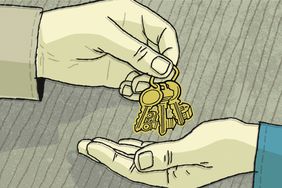:max_bytes(150000):strip_icc()/Bankruptcy-Tips-4c8af2ec74ab42ee9f962b4b5e9225a4.png)
According to Eric Johnson, an agricultural law and bankruptcy attorney with Spencer Fane in Kansas City, Missouri, farm-restructuring bankruptcies occur under Chapter 12 or Chapter 11 of the bankruptcy code. Farms that exceed the small farm Chapter 12 debt limits must restructure in a Chapter 11, says Johnson. Different rules apply in each, and each has a different impact on the cost and amount of a party's negotiating leverage in a case.
If you are a landlord or tenant, you should keep the following points in mind when dealing with a farm lease and bankruptcy, says Johnson:
- Leases in a farm bankruptcy are primarily controlled by federal bankruptcy law. How a lease is treated can also be influenced by state law. As a result, there may be differences on how your farm lease is treated depending upon which state the land is located in and where the bankruptcy is filed.
- The date a bankruptcy petition is filed can determine how claims are treated. If a landlord's claim is treated as an unsecured prepetition claim, it may be a lower priority. If it is treated as a postpetition claim, it will generally be given greater priority. This increases both the odds of the claim getting paid in full and the landlord's leverage in a case. There are several critical deadlines under both federal and state laws. You and your attorney should know these deadlines. Whether you are a landlord or a tenant, failure to comply could be costly.
- A terminated or expired lease will limit a tenant's rights. While a bankruptcy can provide tenants additional leverage and flexibility with leases, that flexibility is eroded if the lease is terminated or expired prior to bankruptcy.
- Tenants in bankruptcy may assume, assume and assign, or reject an unexpired lease. Restructuring tenants can evaluate every unexpired lease and assume the desirable leases, assign certain leases to others, and reject the remainder. If you do not act promptly, a lease can be automatically rejected under bankruptcy law. Your financial adviser and attorney should evaluate the legal, operational, and financial implications of each lease to determine the best option.
- An unexpired lease remains valid when a tenant files bankruptcy. The automatic stay of bankruptcy halts an eviction action and gives a tenant time to create a restructuring plan. Use that time to evaluate leases and find funding to make lease payments. In order to mitigate being left with a bankrupt tenant during the growing season, a landlord may schedule the tenant's first rent payment before planting dates. If the tenant misses the deadline and cannot pay, use the extra time to end the defaulted lease and bring in a new tenant.
- Landlords are in a good position to collect postpetition rents. A tenant in bankruptcy must pay postpetition lease obligations. A landlord should ask counsel to make it a priority to learn how the tenant will make these payments. Tenants should present a paid and outstanding rent report to your attorney before filing, so your attorney is prepared to deal with postpetition lease issues.
- Bankruptcy is a process of negotiated solutions. Parties may attempt to voluntarily renegotiate leases in bankruptcy. Parties may also negotiate default cure amounts. Negotiated solutions can lead to better leases that strengthen the landlord/tenant relationship and reduce the costs of litigation.
- Mitigate bankruptcy during lease negotiations. Tenants who share financial statements with landlords can negotiate healthier leases. Structure lease payments to coincide with the cash flows of the tenant's marketing plan. Consider using a base-plus-bonus payment system to avoid stressing tenants in low-price years while rewarding landlords with healthy bonus payments in profitable years.
Tenants can offer collateral or obtain a third-party guaranty to further secure the obligations under the lease. Security is most comforting when landlords rent to a farmer who doesn't have a strong balance sheet or in years when cash flows are tight. Landlords must properly perfect a secured interest, so make sure the documents are filed on time.
Most importantly, consult with an attorney before taking action in a bankruptcy. Ask your attorney to explain the unique combination of state and federal bankruptcy statutes that apply in your jurisdiction, and let your attorney review your leases. Each phase of the crop season creates a different set of issues for tenants and landlords in bankruptcy.
About the Author
Brent King is managing director at Glass Ratner Advisory & Capital Group LLC in Kansas City.
Email: king@glassratner.com








